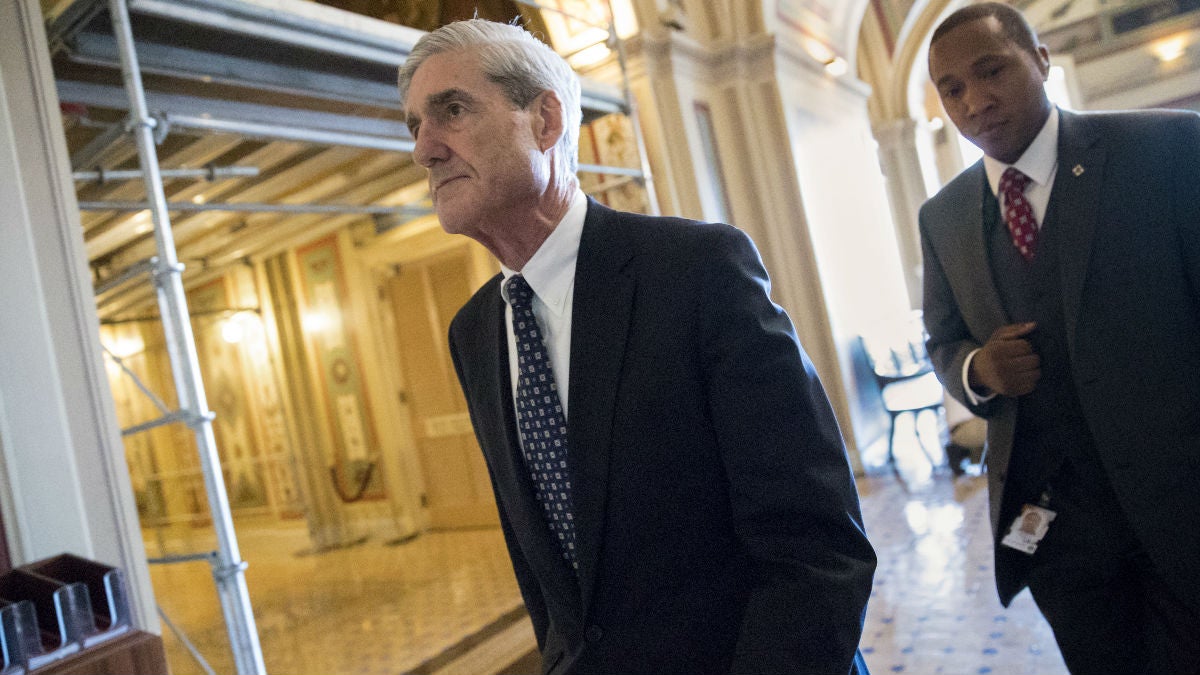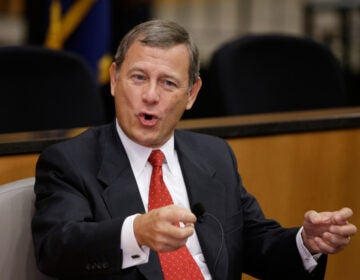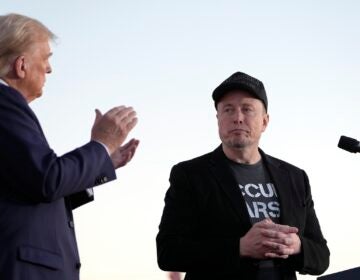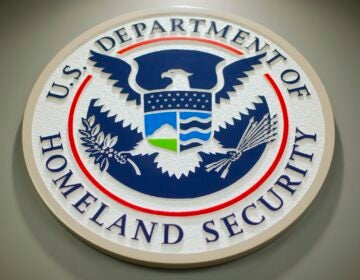Robert Mueller, Vietnam, and the Logan Act
Much has been made in the press recently to cast doubt on Special Prosecutor Robert Mueller’s potential use of the Logan Act in his investigation of the Trump-Russia scandal.

Special Counsel Robert Mueller departs after a closed-door meeting with members of the Senate Judiciary Committee about Russian meddling in the election and possible connection to the Trump campaign, at the Capitol in Washington in June. (AP Photo/J. Scott Applewhite)
Much has been made in the press recently to cast doubt on Special Prosecutor Robert Mueller’s potential use of the Logan Act in his investigation of the Trump-Russia scandal. The Logan Act is a centuries-old law that criminalizes negotiations by private citizens with foreign governments that impinge on the interests of the United States.
First, it is often noted that no one has ever been successfully prosecuted under the Act. (In fact, there have been only two indictments under the Act, in 1803 and 1852.) Second, there are constitutional questions surrounding the Act’s infringement on citizens’ First Amendment rights. Third is the applicability of the Logan Act to Michael Flynn, et al., given their role as in the transition between the Obama and Trump Administrations. It is that last assumption that concerns us today.
It has been posited that members of the Trump transition team who would soon be making United States’ foreign policy should be immune to prosecution under the Logan Act, because, in essence, they needed to hit the ground running. Yet, the fact that they would soon have the power to control U.S. foreign policy is the explicit reason that they, of all people, should not be engaging with foreign powers in the policy arena beyond official greetings. It is often asserted that contact between transition team members and foreign officials is commonplace. That may be, but when those transition team members influence policy, they muddle the entire concept of a unified government. That is potentially remarkably dangerous. It is also a fact of which Robert Mueller, of all people, is painfully aware.
Consider this: In December of 2016, coincidently the same time that Michael Flynn, the man who was soon to become Trump’s National Security Advisor, was undermining the Obama Administration’s actions to punish Russia for interference with the recent U.S. presidential election, evidence came to light of the nation’s last blatant violation of the Logan Act by Republican Presidential candidate Richard Nixon and the man who would eventually become his National Security Advisor, Henry Kissinger.
In the summer and fall of 1968, the Lyndon Johnson administration was working furiously to achieve a peace settlement with the North Vietnamese and their Soviet sponsors. By late September, there was an offer on the table that was acceptable to both sides. Kissinger, hawkish foreign policy advisor to Democratic President Lyndon Johnson, knew this information would be valuable to Republican presidential candidate Richard Nixon. According to a December 2016 New York Times article by Nixon biographer John Farrell,Kissinger leaked it to the campaign.
Fearing that a successful treaty might tip the electoral scales in favor of Democratic candidate Hubert Humphrey, the two men then worked behind the scenes to torpedo the deal. The order to “monkey-wrench” the agreement was given to Nixon’s aide-de-camp, H.R. Haldeman.
Working through a Republican donor and cutout Anna Chennault, Haldeman, contacted the president of South Vietnam, Nguyễn Văn Thiệu, and convinced him to walk away from the negotiations with the understanding that, if elected, Nixon would demand a better deal for him. Nixon also sought to pressure Thiệu through Taiwanese leader Chiang Kai-shek and an influential businessman named Louis Kung. Further, Nixon told Haldeman to order his vice presidential candidate Spiro Agnew to inform CIA Director Richard Helms that in order to keep his job in the incoming administration, he needed to be “pliant” in this regard.
Their efforts were a success, and Thiệu walked away from the peace conference in October 1968. Nixon — who along with Haldeman, Kissinger, Chennault, Agnew, and Kung had blatantly violated the Logan Act by interfering as private citizens in the foreign policy of the United States — was elected President a few weeks later. The war would continue to rage for another seven years.
Earlier that summer, in July of 1968, a young lieutenant named Robert Swan Mueller III was shipped to Vietnam to serve a tour of duty with the 2nd Battalion, 4th Marines, who known collectively as the Magnificent Bastards. Mueller had joined the Marines after a friend and lacrosse teammate from Princeton had been killed the year before in service to his country. While in Vietnam, Mueller earned the Bronze Star with Valor, two Navy and Marine Corps Commendation Medals with Valor, a Republic of Vietnam Gallantry Cross, and a Purple Heart. His Purple Heart was awarded after being shot through the thigh during a firefight in April of 1969. He returned to lead his platoon later that summer.
Not to put too fine a point on it, but had private citizen Richard Nixon not committed a serious crime with a political motive — a specific violation of the Logan Act — the war in Vietnam would likely have been over by the spring of 1969. Robert Mueller, therefore, would never had been wounded in battle. One tends to think that he’d remember that.
Far more importantly, had Richard Nixon not violated the Logan Act, the more than 20,000 American servicemen who died in Southeast Asia between the fall of 1968 and 1975 would have lived far fuller lives. The more than 100,000 wounded in those years, would not have suffered those unnecessary loses. Nor, of course, would the more than one million Vietnamese civilians and soldiers killed in those years have had their lives cut short by the continued military intervention of the United States in their nation.
There are few occasions where historical examples are quite so well cut-and-dried to serve as lessons for contemporary circumstances. While the Nixon-Kissinger example is not a perfect one-to-one fit with the Trump-Flynn imbroglio, it is certainly enough so to be compelling. Had, there been, in the year immediately following the election of Richard Nixon, an investigation of that “October Surprise” by a determined prosecutor, driven by a commitment not to the politics of the moment, but a sense of duty to his country, one can only speculate how many fewer comrades a young Lt. Mueller would have had to see interred at Arlington National Cemetery.
Moreover, current coverage of national events would not be citing Watergate as a historical political example against which this current scandal should be measured. Rather, the talking heads would be citing the baldly treasonous violation of the Logan Act by men so base that they put their own quest for political power above the welfare of their nation, and the lives, literally, of millions. Sadly, without an aggressive and contemporaneous investigation, evidence of that crime did not surface for nearly 50 years.
Desktop commanders often remind us that our soldiers fight, are wounded, and die in foreign lands to protect our freedom and our way of life. Part of that way of life is a commitment to the rule of law and the peaceful transfer of power between governments. President Trump would do well to remember that the Magnificent Bastard coming at him has been fighting for those beliefs his entire life.
WHYY is your source for fact-based, in-depth journalism and information. As a nonprofit organization, we rely on financial support from readers like you. Please give today.




